
Laura Bennett is the Programs Director for Awamaki, a non-governmental organization (NGO) based in Ollantaytambo, a small town in Peru’s Sacred Valley. This village is best known for housing the railway station you’re sure to pass through on a trip to Machu Picchu. However, if you stop in you’ll find the town holds more than just a railway, but some incredibly talented artisans with beautiful crafts as well. We caught up with Bennett to glean some of her insights about the organization and to share how people can get involved with this local initiative.
Last updated December 17, 2020 by Gina Cronin. Interview published October 1, 2013.
Bennett: Awamaki is a Peruvian-American non-profit organization working in and around Ollantaytambo. We run three programs in women’s fair trade artisan cooperatives, sustainable tourism, and community capacity-building, and we believe in using a social enterprise model to achieve our goals.
At the heart of Awamaki is our work with five women’s artisan cooperatives, providing them with skills-based trainings and most importantly, connecting them to global markets, enabling them to earn an income to invest in their families and transform their communities. The women in these five cooperatives make all the woven and knitted products such as hats, gloves, scarves, baby booties and legwarmers that we sell in our fair trade store in Ollantaytambo as well as to a number of international clients. We sell woven textiles straight from the loom, and we also sell fashionable products that feature the textiles, for example shoulder bags, purses, and iPod cases.
Our sustainable tourism program grew out people’s desire to see where the beautiful textiles of Peru are made, who makes them, and how. We offer a variety of tours out to local communities and in Ollantaytambo itself. We also run workshops and have a small Language Centre, where visitors can take lessons in Spanish or Quechua.
Our community education program is the hub of all of the many capacity-building workshops that we provide for the more than 150 women that we work with. We give intensive capacity building in technical, administrative and leadership skills – everything from knitting or hosting tourists in their homes, to business administration skills. Awamaki also provides English and computer classes to local people in Ollantaytambo, many of whom work in the tourism industry and for whom these skills are vital. Finally, we carry out regular monitoring and evaluation to ensure that we are having a positive impact through our work.
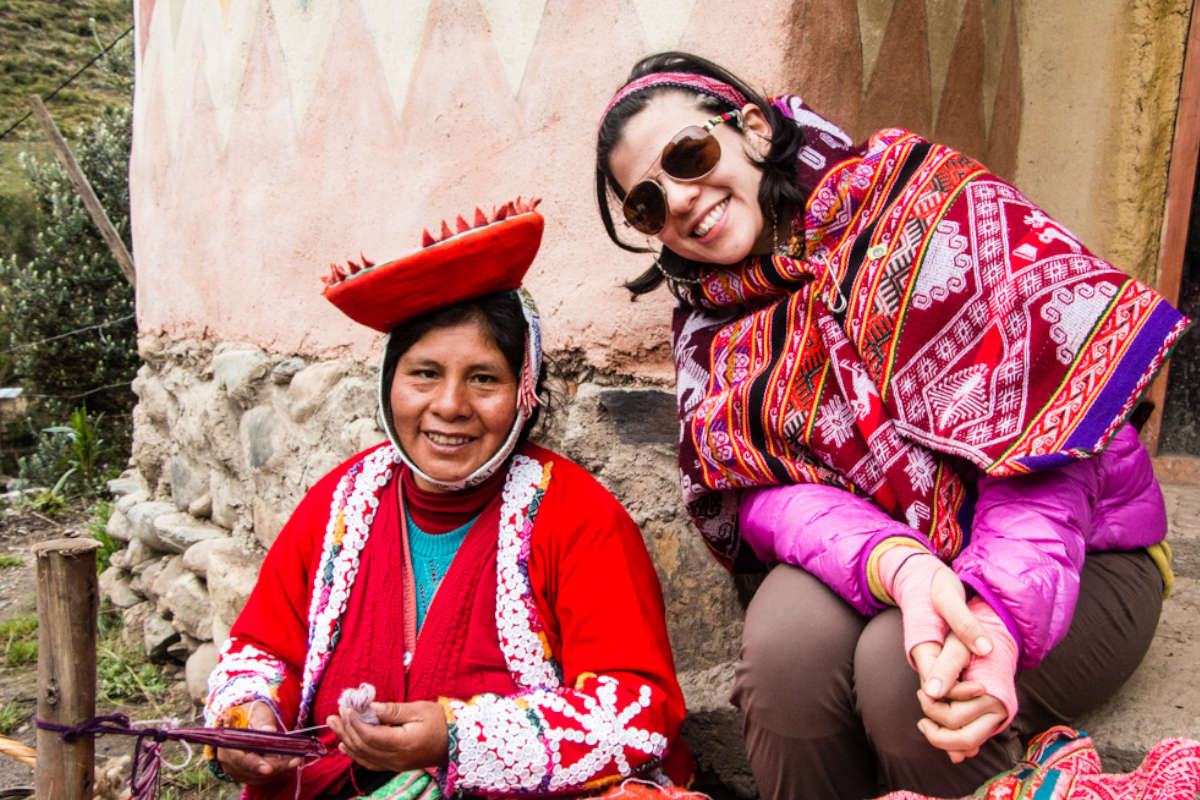
Volunteer learning about weaving techniques. Photo by Awamaki.
Bennett: As the Programs Director, my role is to manage the staff here in Ollantaytambo and ensure that the programmatic work we do stays on mission and true to the vision of Awamaki. A large part of my role is day-to-day trouble-shooting and problem solving, whether that is something as simple as contracting an electrician to fix a broken light, or decision-making in more complex areas such as how to best assist our cooperative members affected by flooding during the rainy season. I also play an active role in the Network of NGOs in the Sacred Valley, and I act as the representative for Awamaki for any visitors or potential collaborators.
Sacred Valley Tours:
Bennett: My favorite Awamaki project is our Cooperative of Spanish teachers. We worked with Fair Services in Cusco (an established Spanish school) to develop a specific six-month training program for the women, many of who are young single mothers, with minimal formal education or training and who would otherwise struggle for an income. The women have been very successfully teaching one-on-one lessons to Awamaki volunteers and tourists since.
The reason that they are my favorite group is due to their passion for learning and self-development. They also make meaningful personal connections with the volunteers and tourists. They have even given up their own spare time to paint the walls and varnish the floors!
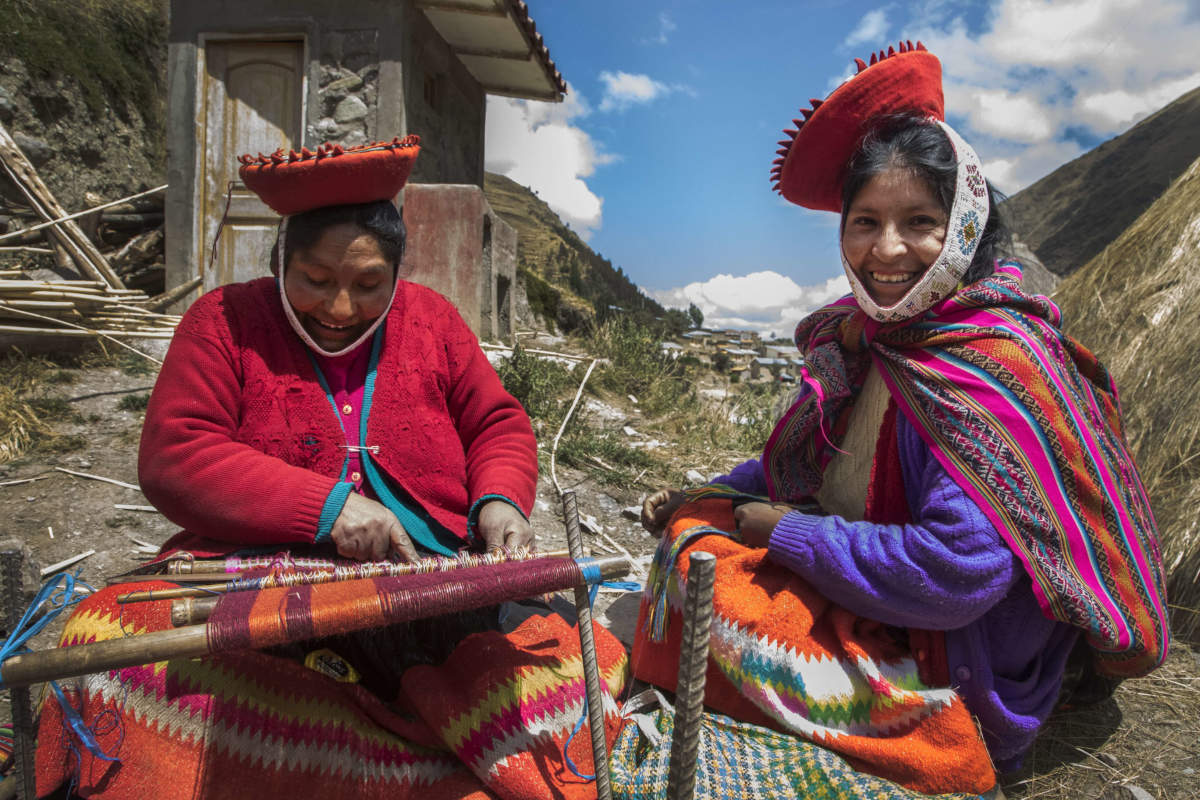
Andean women doing traditional weaving. Photo by Awamaki.
Bennett: We have worked very hard on building what we do, so now we’re turning our focus very much to how we do it. In other words, we are continuing to improve the quality of what we do across all programs. In the Women’s Cooperatives program, this has meant working with all of our women’s cooperatives to improve the quality of the products they are making, whether that is through workshops in measurements for our weavers, or taking our knitters to visit other cooperatives that are at a more advanced stage of exporting internationally so that they can really understand the importance of producing high quality products, or training our artisans in Ollantaytambo based on tourists’ feedback so that they can constantly improve their workshops.
With an improvement in the quality of our offerings across the board, we hope that we will be in a position to further promote Awamaki further so that we can place more income in the hands of the women that we support.
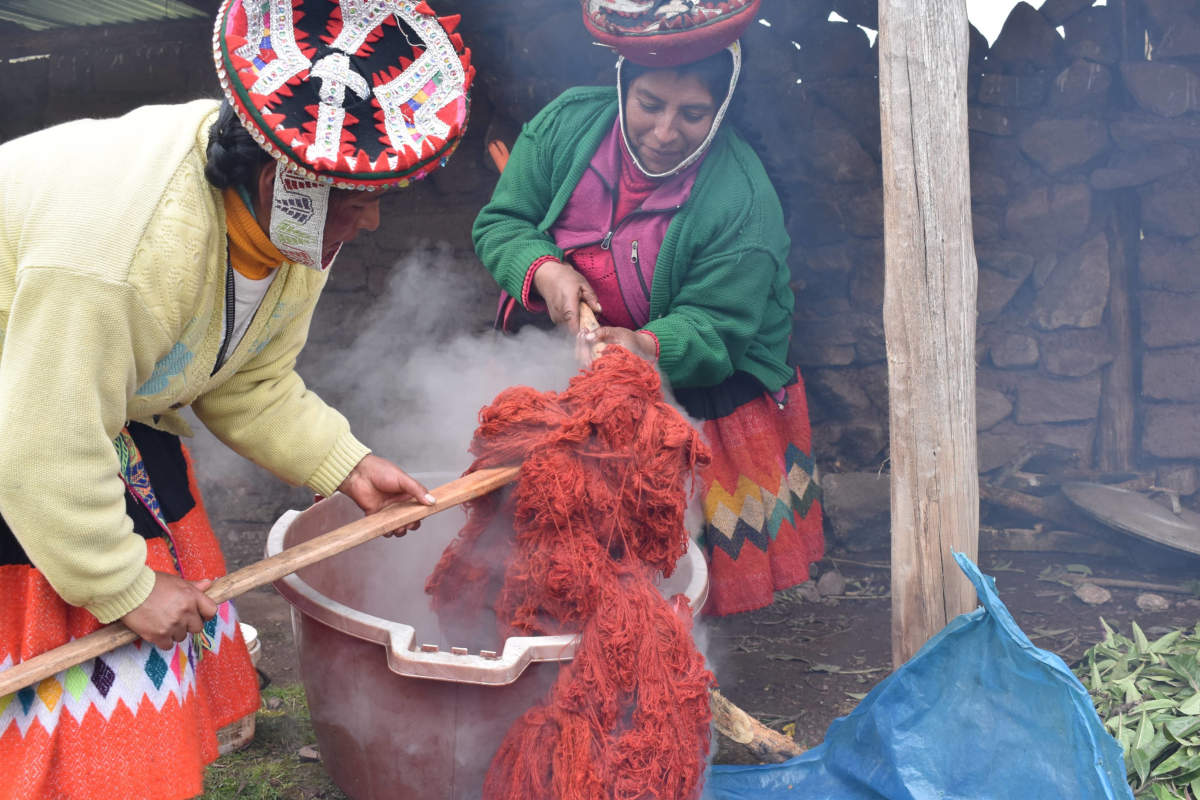
All-natural dyes used in traditional textiles. Photo by Awamaki.
Bennett: There are many ways to get involved with Awamaki’s work!
If you’re passing through Ollantaytambo, visit our Fair Trade store and buy one of the beautiful handmade products. The majority of the proceeds from the sale go straight back to the very same woman who made the product. Or sign up to a day workshop in Peruvian cooking, woodcarving, basket weaving, or pottery, all led by local artisans. Or go on one of our Quechua Community Visits where you can see our women weavers at work, and even learn to weave your own bracelet to take home.
To immerse yourself longer in the culture, opt for one of our homestays in Ollantaytambo. This is a real chance to interact with a local family. You might even learn some Quechua over the dinner table!
If you have a month or so to spare, take part in our Service Travel program. This combines tourism activities with service projects through Awamaki and some of our partner NGOs. It is also a great way to fit in all the tourist experiences available, while giving back to the community. And for people who really want to get involved at the deepest level, we have a fantastic volunteer program for 12 weeks, 6 months or even longer.
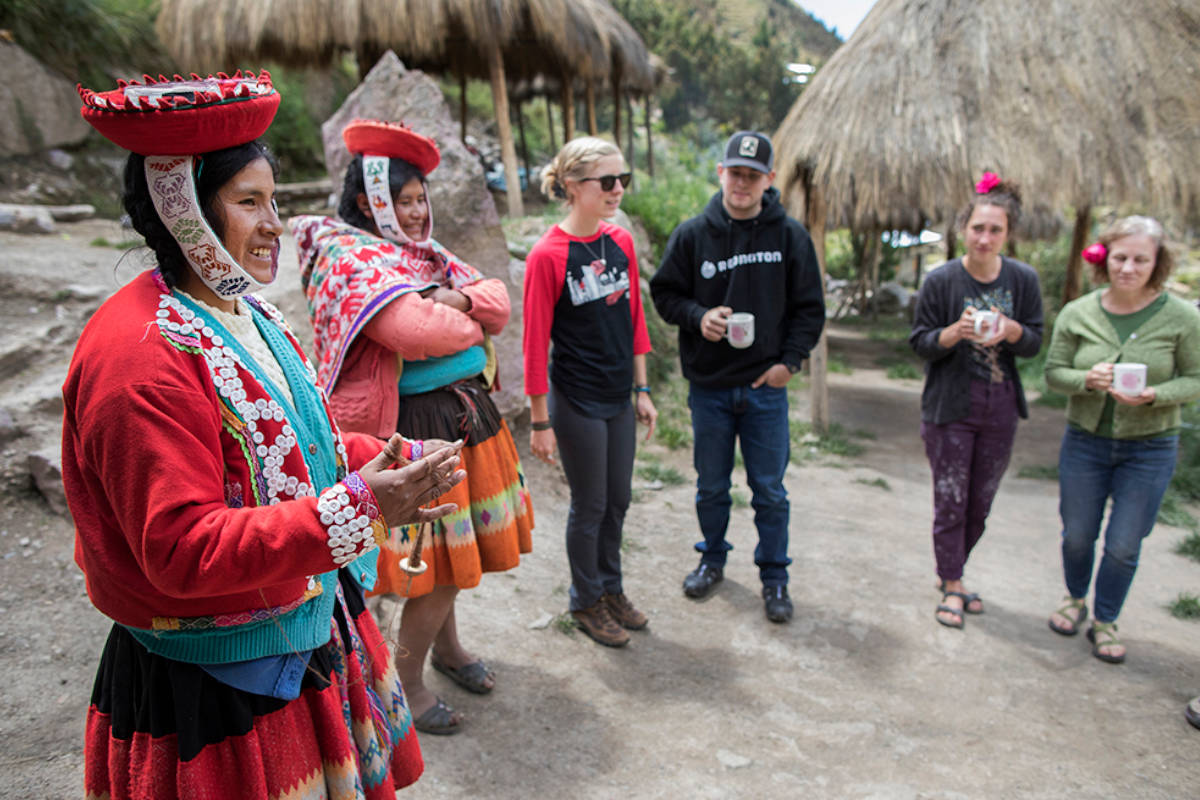
Short lecture by the artisans on an Awamaki tour. Photo by Awamaki.
Visit Awamaki’s website for volunteer opportunities. To book a responsible and sustainable trip to Peru, don’t hesitate to contact us to start planning your trip.


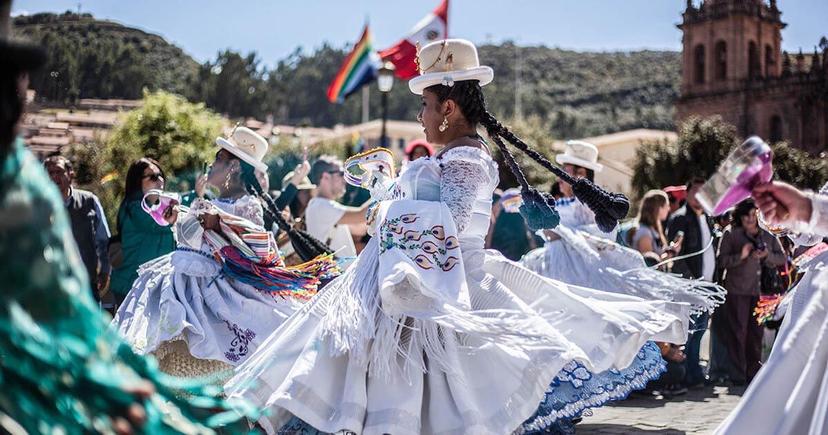
Email: [email protected]
Sign up to receive our newsletter for great articles, stunning photos, and special deals.